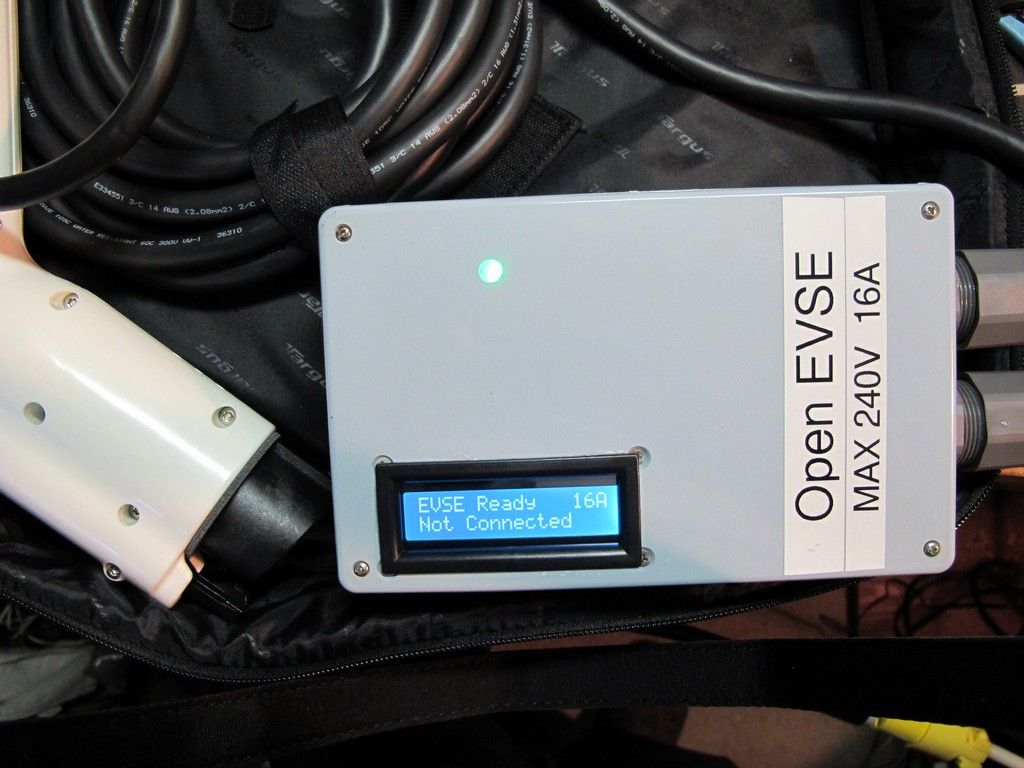You can see full photos in the OpenEVSE thread.

I have a portable OpenEVSE for sale. I used it at work until I built a wall moumted Open EVSE.
This unit has a UL 120V rated cable and connector. The cable is rated for 300V I have a Megger and I have tested the insulation beyond 500VAC.
The Nisson stock EVSE is rated for 300VAC. If you modify it for 240V it is seeing around 340Vac peak. 240 X 1.41 RMS for peak voltage.
In modern insulation if the insulation passes 300VAC then it will likely pass 400AC or better. The UL approved 240V cables use 600VAC cables This is extereme overkill. Phil's mod to the stock unit and my portable units use a 300V cable.
THe portable unit has a 240V plug and a supplied adapter for 120V use. It autoswitches between L1 at 12A and L2 at 16A. It has a yellow display with an Adafruit i2c backpack. It also has a barburi sense board for L1 detection ans stuck relay detection.
I am selling this for $350 plus $15 for shipping. This is sold asis but a gurantee operation upon receipt. Pavment is by Paypal or a Postal Money order. It may also be picked up at my house in Anaheim near Disneyland.

I have a portable OpenEVSE for sale. I used it at work until I built a wall moumted Open EVSE.
This unit has a UL 120V rated cable and connector. The cable is rated for 300V I have a Megger and I have tested the insulation beyond 500VAC.
The Nisson stock EVSE is rated for 300VAC. If you modify it for 240V it is seeing around 340Vac peak. 240 X 1.41 RMS for peak voltage.
In modern insulation if the insulation passes 300VAC then it will likely pass 400AC or better. The UL approved 240V cables use 600VAC cables This is extereme overkill. Phil's mod to the stock unit and my portable units use a 300V cable.
THe portable unit has a 240V plug and a supplied adapter for 120V use. It autoswitches between L1 at 12A and L2 at 16A. It has a yellow display with an Adafruit i2c backpack. It also has a barburi sense board for L1 detection ans stuck relay detection.
I am selling this for $350 plus $15 for shipping. This is sold asis but a gurantee operation upon receipt. Pavment is by Paypal or a Postal Money order. It may also be picked up at my house in Anaheim near Disneyland.



